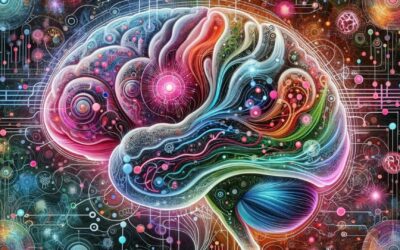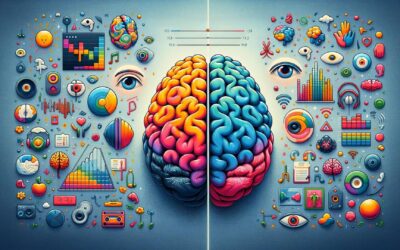- Cognitive Benefits of Bilingual Education
- Enhanced Problem-Solving Skills
- Delayed Cognitive Decline
- Increased Cultural Awareness and Empathy
- Actionable Steps to Embrace Bilingual Education
- Action Point
- Why Should You Care?
- Key Takeaways:
- Keywords and Definitions:
- Frequently Asked Questions:
- Myth Buster:
- Let’s Talk:
Discover the profound impact of bilingual education on cognitive development. This article explores the benefits of learning multiple languages from an early age, backed by real-life examples and scientific studies. Understand how bilingualism can enhance mental agility, problem-solving skills, and cultural awareness, offering actionable advice for incorporating bilingual learning into your life.
In today’s globalized world, the ability to speak more than one language is not just a social advantage but a cognitive tool that can significantly enhance mental processes. Bilingual education, which involves teaching academic content in two languages, has been shown to have a profound impact on cognitive development. This form of education stretches beyond mere language learning; it shapes the brain’s structure, improving mental agility, enhancing problem-solving skills, and fostering a better understanding of the world’s cultural diversity.
Cognitive Benefits of Bilingual Education
Research consistently shows that individuals who speak more than one language have a higher level of mental flexibility. They are better at switching between tasks, a skill attributed to the constant mental juggling of languages. For instance, a study published in the “Journal of Cognitive Neuroscience” found that bilingual individuals outperformed monolinguals in tasks that required attention, inhibition, and short-term memory.
Real-life implications of these cognitive advantages are vast. Consider a bilingual person navigating a multilingual work environment; they can easily switch between tasks, understand diverse perspectives, and solve problems more creatively. In educational settings, bilingual students often show enhanced reading abilities and greater academic achievement across various subjects, not just languages.
Enhanced Problem-Solving Skills
Bilingual education promotes complex thinking and problem-solving skills. Managing two linguistic systems simultaneously encourages the brain to resolve internal conflicts, leading to a more efficient cognitive process. This skill translates into real-world scenarios, such as conflict resolution, critical thinking in challenging situations, and innovative thinking in creative endeavors.
Delayed Cognitive Decline
Another significant benefit of bilingualism is its impact on aging. Research indicates that bilingual individuals experience a later onset of cognitive decline symptoms associated with aging, such as dementia and Alzheimer’s disease. This protective effect suggests that bilingual education can contribute to long-term brain health and resilience.
Increased Cultural Awareness and Empathy
Learning languages within the context of bilingual education also enhances cultural awareness and empathy. Students are exposed to different cultures, beliefs, and ways of thinking, which fosters open-mindedness and appreciation for diversity. This cultural competence is invaluable in our interconnected world, promoting harmony and understanding across different communities.
Actionable Steps to Embrace Bilingual Education
- Early Exposure: Encourage language learning from a young age, when the brain is most receptive to acquiring new languages.
- Incorporate Language into Daily Life: Use technology, media, and books in different languages to immerse yourself or your child in a bilingual environment.
- Engage with Native Speakers: Interaction with native speakers provides authentic language practice and cultural insights, enhancing linguistic and cultural fluency.
- Travel and Cultural Exchange: Opportunities to use the language in real-life settings, through travel or cultural exchange programs, solidify language skills and cultural understanding.
Action Point
The cognitive benefits of bilingual education are clear, from enhancing problem-solving abilities and creativity to delaying the onset of cognitive decline and fostering cultural awareness. Whether you are considering bilingual education for yourself or for your children, the time to start is now. By embracing bilingualism, you’re not just learning a new language; you’re also giving your brain a workout, preparing it for a lifetime of enhanced cognitive function and cultural understanding.
Let this knowledge inspire you to open your world to new languages and cultures. Start small, stay consistent, and watch as the world expands in front of your eyes, not just linguistically but cognitively and culturally as well. Embrace bilingual education and unlock your brain’s full potential, today and for years to come.
Why Should You Care?
Learning about the impact of bilingual education on cognitive development is crucial because it affects not just personal growth but societal advancement. In a world where communication across cultures is increasingly necessary, understanding how bilingualism shapes our brains, enhances our cognitive abilities, and prepares us for a globalized future is invaluable. This knowledge can influence educational choices, career paths, and even our approach to lifelong learning and mental health.
Key Takeaways:
- Mental Flexibility: Bilingual individuals exhibit greater mental agility and are adept at switching between tasks.
- Problem-Solving Skills: Bilingual education enhances complex thinking and problem-solving abilities.
- Delayed Cognitive Decline: Being bilingual can delay the onset of cognitive decline in aging, including diseases like dementia and Alzheimer’s.
- Cultural Awareness: Bilingualism fosters cultural empathy and a deeper understanding of global diversity.
- Enhanced Academic Achievement: Bilingual students often perform better academically across various subjects, not just in language studies.
Keywords and Definitions:
- Bilingual Education: Teaching academic content in two languages to improve linguistic skills and cognitive development.
- Cognitive Development: The construction of thought processes, including remembering, problem-solving, and decision-making, from childhood through adulthood.
- Mental Flexibility: The capacity of the brain to switch between thinking about two different concepts, or to think about multiple concepts simultaneously.
- Cognitive Decline: The gradual loss of brain functions, including memory and thinking skills, often associated with aging.
- Cultural Awareness: Understanding and appreciating the similarities and differences among cultures.
- Linguistic Systems: The structure and rules of a language, including grammar, vocabulary, and syntax.
- Critical Thinking: The ability to think clearly and rationally, understanding the logical connection between ideas.
- Cultural Competence: The ability to understand, communicate with, and effectively interact with people across cultures.
- Neurodegenerative Diseases: Disorders characterized by the progressive loss of structure or function of neurons, including Alzheimer’s and Parkinson’s.
- Globalized Future: A world where businesses and cultures are interconnected across borders.
Frequently Asked Questions:
Can adults benefit from bilingual education as much as children?
Yes, adults can also benefit from bilingual education, although children may find it easier to become fluent in multiple languages due to the plasticity of their developing brains. For adults, learning a new language can still enhance cognitive flexibility, improve executive function, and even offer protection against cognitive decline.
Does bilingual education interfere with a child’s academic performance in other subjects?
Contrary to some concerns, research shows that bilingual education can enhance academic performance across subjects. Bilingual students often develop better problem-solving skills, creativity, and adaptability, which can contribute to improved performance in math, science, and other areas.
Myth Buster:
Myth: Learning two languages can confuse children and delay their language development.
Reality: Studies have shown that while bilingual children may initially mix languages, this does not indicate confusion or hinder their overall language development. In fact, bilingual education promotes greater linguistic awareness and can enhance cognitive development, leading to superior language skills in both languages over time.
Let’s Talk:
- Have you experienced the cognitive benefits of being bilingual or multilingual in your life?
- What do you think are the biggest challenges and advantages of incorporating bilingual education into school curriculums?
- How does your culture view bilingualism and multilingualism?
I encourage you to share your thoughts and experiences in the comment section below. Let’s discuss the impact of bilingual education on cognitive development and how it shapes our global society.










0 Comments